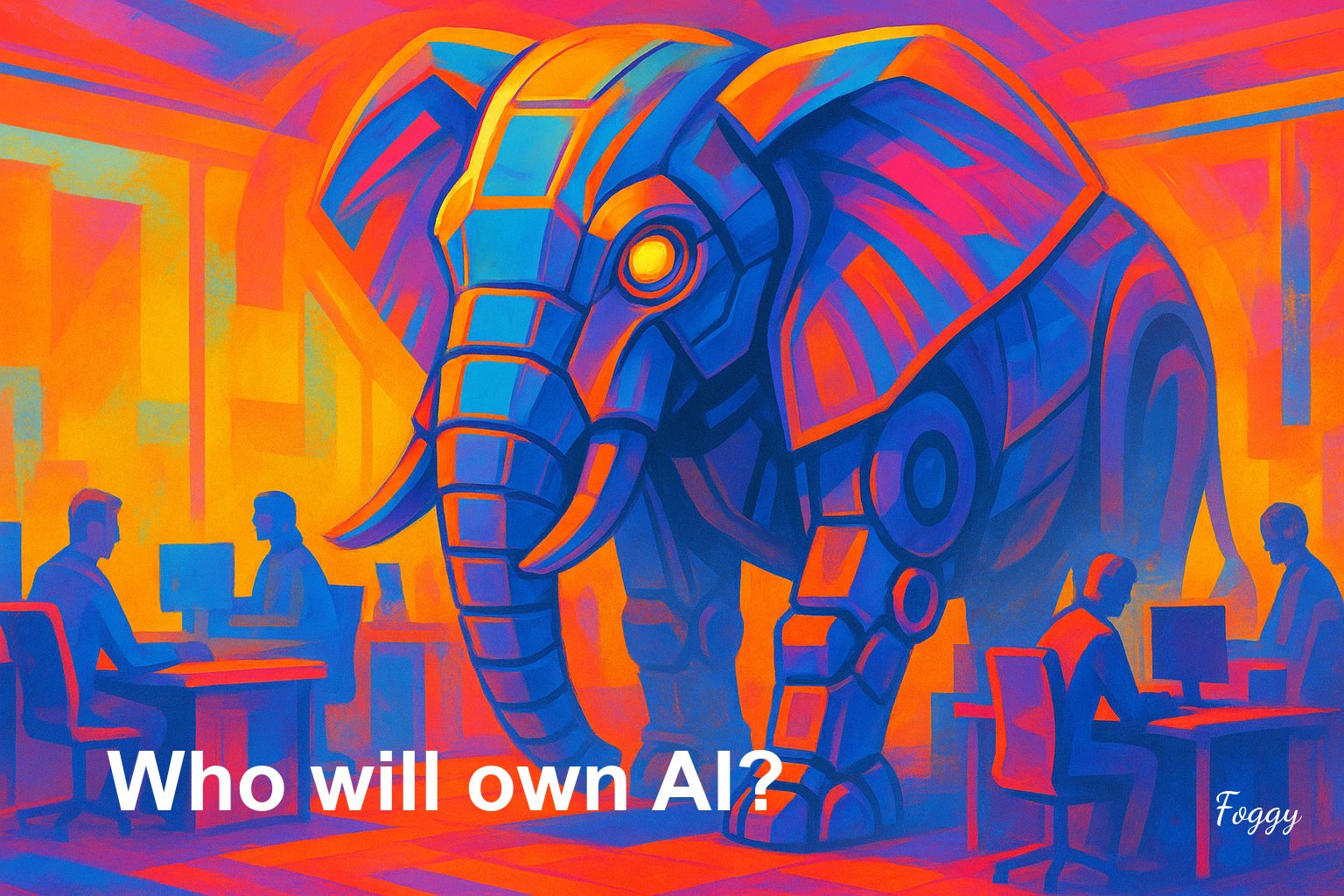The AI revolution isn’t coming — it’s already reshaping our economy, jobs, and power structures. But while the world is distracted by dazzling tools and trillion-dollar valuations, we’re ignoring the most urgent question of all: Who owns the AI, and what does that mean for the rest of us?
In a compelling discussion on the Prof G Markets podcast, economist Justin Wolfers, NYU professor Scott Galloway, and host Ed Elson tackled what Wolfers called “The most important economic debate of our lifetime.” And no, it’s not tariffs.
From Catastrophe to Opportunity: A Tale of Two Futures
Wolfers painted a vivid metaphor: “If I offered you a robot that could do your job for you… you could be at the beach… opera singing, poetry, and body surfing.” That robot, of course, is AI.
But here’s the catch: “Now let’s say I sell the robot to your boss. How do you feel now?” Wolfers added with a tinge of humor and gravity. “You’re out of a job, brother. Penniless. Nothing to do by the side of the road.”
The tech doesn’t change – the outcome does said Wolfers. And it all hinges on one critical question: “Who owns the bloody robot?”
The AI Boom: A Glass-Half-Full View
 Despite being a self-proclaimed pessimist (“I’m a glass-half-empty kind of guy,” Galloway joked), both he and Wolfers acknowledged that AI could drive a wave of economic growth and job creation.
Despite being a self-proclaimed pessimist (“I’m a glass-half-empty kind of guy,” Galloway joked), both he and Wolfers acknowledged that AI could drive a wave of economic growth and job creation.
Galloway speculated:
“AI is funding one of the greatest capex booms in history… building data centers, modernizing the grid, and creating jobs… the markets stay high, inflation is tamed, and we essentially have this AI excitement funding this new age of infrastructure.”
It’s a best-case scenario that economists rarely lead with – but perhaps should.
The Ownership Dilemma: Capital vs. Labor
Galloway didn’t mince words: “A smaller group of very talented, very lucky people will aggregate an even greater proportion of the spoils.”
Wolfers added nuance, “What we have here is not a robot problem, or an AI problem – but an ownership problem.”
This is not unlike the situation today, where Google has a monopoly on search that is only now being challenged by AI. A small handful of corporate interests own the platforms shaping AI, raising questions about access, competition, and control.
In both experts’ views, the massive gains from AI are not inherently problematic – but if ownership is concentrated, inequality will skyrocket. Wolfers argued that while GDP might rise regardless, “distribution matters just as much.”
AI’s Unexpected Winners (and Losers)
 One of the most surprising insights came from early labor studies, according to Wolfers:
One of the most surprising insights came from early labor studies, according to Wolfers:
“AI actually helps the less skilled the most – so far. Less skilled workers can become pretty highly skilled.”
This bucks decades of economic trends, where technological change has often hurt the working class, particularly those in manual labor. Wolfers likened his own vulnerability to that of Detroit steelworkers in the 1970s:
“I’m really good at reading a lot of economics and turning it into simple words. That’s what a large language model does.”
Even the most cognitively elite jobs, like professors, aren’t safe.
Policy Stakes: Redistribution or Rigged Game?
Throughout the conversation, Galloway returned to the policy vacuum in Washington, warning that complex systems often serve incumbents, not the displaced:
“We place more complexity on these issues such that the incumbents just stay wealthy.”
His solution? A return to progressive taxation, reminiscent of post-World War II America, when top marginal rates hovered near 90%. Galloway advocates for a universal basic income, retraining, and a tax structure that provides displaced workers with a genuine safety net.
Wolfers chimed in, “Bingo… I believe in fairness. I believe that the womb you happen to be born from should not determine your life outcomes.”
So… What Could Go Right?
Wolfers urged us to ask this question more often. Economists – by training – are obsessed with risk. But that doesn’t mean the upside isn’t real or worth pursuing:
“The upside if AI works is just enormous… And the policy stakes are the difference between misery and going to the beach.”
And as Galloway aptly summarized:
“All the catastrophizing that I’m guilty of… just never shows up.”
Conclusion: Time to Talk About the Robot
If this conversation reveals anything, it’s that the economic implications of AI aren’t theoretical. They’re happening now – and the winners and losers are being sorted based on ownership, access, and policy.
 And yet, Wolfers noted:
And yet, Wolfers noted:
“Instead, we’re sitting around talking about tariffs… This has got to be a debate that brings everyone in. Moms, dads, working-class folks… It’s been 100% crowded out.”
We can’t afford to keep staring at shiny objects. The AI revolution is real, and what we do next will determine whether it delivers broad-based prosperity – or reinforces an already fragile economy, concentrating ownership in the hands of the rich and powerful.
As Wolfers said, “This is the policy issue of our age.”
My personal view is that the vacuum in government policy around the world regarding AI and ownership is the biggest risk to achieving positive outcomes with the technology.
You can catch this thoughtful and important YouTube conversation at https://youtu.be/EklEzXBQP9U?si=xnWHsLB7Os-i7kvF&t=1947. It starts at 32:27 and continues through 54:37 or view it below.
By the way, if you’re looking for AI transcription, audio, and video tools, check out the AI Marketer Directory, which offers more than 2,050 curated profiles with key features, reviews, and pricing.
By Jeff Domansky, Managing Editor
Recent AI marketer blog posts:
AI Leading to High Anxiety in the Workplace
From SEO to GEO: How AI Search Is Rewriting the Rules & What Marketers Must Do Now











